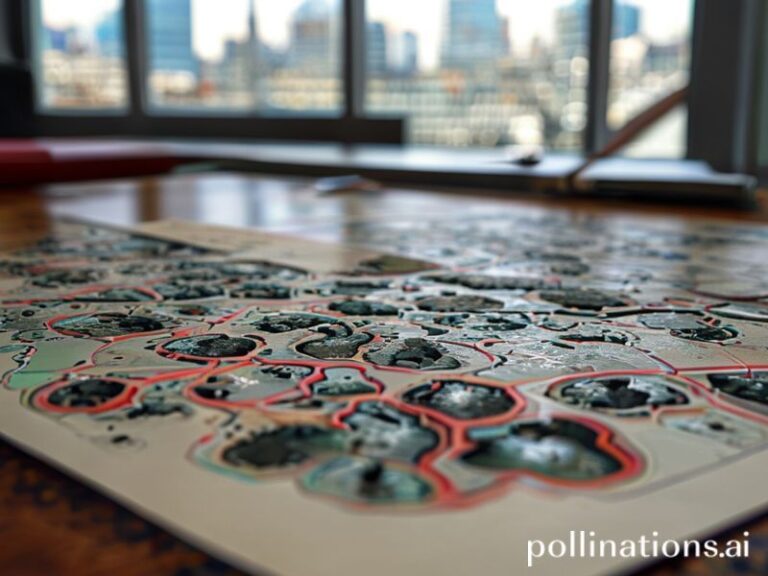Whit Weeks: How Scandinavia’s Holy Long Weekend Holds Global Trade Hostage (and Gets Away With It)
Whit Weeks: When the Northern Hemisphere Takes a Collective Smoke Break While the Rest of the World Pretends Not to Notice
By the time the lilacs in Oslo have bloomed and Stockholm’s office towers start emptying at 3 p.m., the annual rite known locally as “whit weeks” is under way. To outsiders it sounds vaguely hygienic—like an obsessive dental-cleaning regimen—but across Scandinavia it’s simply the polite way of saying, “Pretend we’re all devout Lutherans and close shop for Ascension Day plus whatever extra weekdays we can staple on.” The result is a string of half-staffed embassies, unanswered emails, and an entire subcontinent pretending that nothing urgent ever happens between May 17 and the following Monday.
The rest of the planet, of course, carries on. Tokyo salarymen clock unpaid overtime, São Paulo traffic still kills the optimistic, and Lagos hustles through generator fumes and hope. Yet every year, global supply-chain planners build a little Scandinavian-shaped hole into their spreadsheets and sigh. Volvo Trucks ships fewer cabs, Spotify’s release calendar goes eerily quiet, and NATO’s northern flank holds its breath—partly from piety, mostly from lack of personnel.
One might assume this quaint custom would wither under the harsh fluorescent lights of neoliberal efficiency. Instead, whit weeks have metastasized. German engineers now tack on “Brückentage” bridge days, the French drape Ascension in extra layers of strikes, and even the famously industrious Swiss discover urgent spiritual needs that coincide with perfect hiking weather. In effect, the North has exported its mid-spring siesta the way it once exported smørrebrød and flat-pack furniture: with smug minimalism and instructions nobody reads.
Economists argue the pause is harmless; a 2023 Copenhagen School of Business paper calculated that Denmark’s GDP actually rises 0.2 % the week after, presumably because workers return so refreshed they accidentally innovate. Others note darker externalities: Ghanaian cocoa traders wait an extra four days for letters of credit, and Indian IT help desks absorb the Nordic ticket avalanche with the hollow-eyed stoicism of a civilization that never got the memo about work-life balance. The world’s invisible cogs keep turning, lubricated largely by people who will never see a fjord.
Climate change, ever the buzzkill, has begun to warp the tradition. Last May, Tromsø hit 28 °C, prompting locals to swap hymnals for SPF 50 and converting Ascension Day into an impromptu beach-blanket barbecue. Meanwhile, southern Europe baked under Saharan heat, making the North’s holy sloth look less like piety and more like privilege. Greta Thunberg tweeted a single emoji: ⏳. No one was quite sure whether it referred to rising seas or the dwindling patience of the Global South.
Political cynics detect strategic genius. By synchronizing vacations, Nordic countries ensure no single neighbor can seize a competitive edge while the others contemplate eternity. It’s the Protestant work ethic inverted: Thou shalt not out-hustle thy neighbor while he’s contemplating the Lord. The EU, ever the killjoy, has floated standardizing public holidays across the bloc, prompting a rare moment of Danish-Swedish unity in muttering “over my gravlax.”
Perhaps the most honest appraisal comes from a Stockholm taxi driver idling outside an empty government complex: “We pretend it’s about Jesus, but really it’s about not melting during the first nice week of the year. If God wanted us in cubicles, He wouldn’t have invented daylight past 9 p.m.” Amen, or at least tacitly agreed upon by millions of quietly absconding Lutherans.
So when your freight forwarder in Gothenburg stops answering WhatsApp and your Danish supplier’s voicemail chirps “Gud bevare,” remember: whit weeks aren’t mere holidays. They’re the North’s gentle reminder that history’s winners get to schedule their existential crises around favorable weather. The rest of us just update the Gantt chart and dream of shade.







